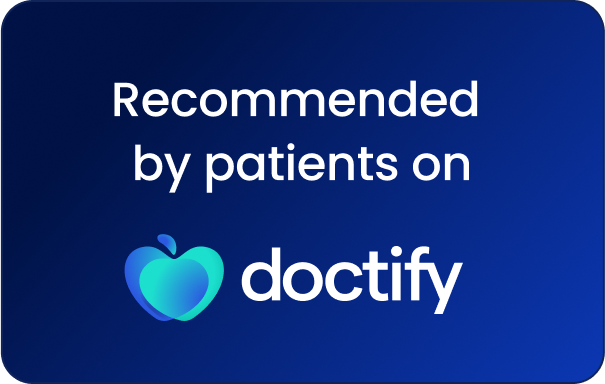If you are considering upper gastrointestinal (GI) surgery, it is completely normal to feel apprehensive. In our practice, we find that the prospect of any operation, especially one involving the oesophagus or stomach, is often surrounded by persistent myths and outdated information. These misconceptions can cause unnecessary anxiety, making it difficult to make a clear and confident decision about your health.
Our goal is to provide the facts about Upper GI Surgery. This article will debunk the most common myths we hear from patients and provide the evidence-based information you need. We want to help you understand your options, set realistic expectations for your recovery, and feel empowered in your healthcare journey.
Common Myths vs. Surgical Facts: What Every Patient Should Know
Navigating the path to wellness requires dispelling misinformation. Let us address some of the most prevalent myths about Upper GI Surgery and replace them with current, evidence-based realities.
Myth 1: Upper GI Surgery always involves large incisions and a long, painful recovery.
Reality: While traditional open surgery is still necessary for some complex cases, a significant number of upper GI procedures now use minimally invasive techniques. Laparoscopic surgery utilises small incisions, a camera, and specialised instruments. This modern approach typically results in less post-operative pain and shorter hospital stays. The Upper GI Surgery recovery is also much faster, with many patients returning to desk work within two to three weeks, compared to a month or more for some traditional surgeries.
Myth 2: Surgery is a last resort reserved only for treating cancer.
Reality: Although Upper GI Surgery is a critical treatment for cancers of the oesophagus, stomach, and pancreas, it is also a highly effective solution for a wide range of benign or non-cancerous conditions. Surgeons routinely perform procedures to treat severe gastro-oesophageal reflux disease (GERD), large hiatal hernias, swallowing disorders like achalasia, and morbid obesity through bariatric surgery. In these situations, surgery can dramatically improve quality of life by resolving chronic pain, discomfort, and other debilitating symptoms.
Myth 3: After surgery, you will be on a severely restricted liquid diet forever.
Reality: A temporary modified diet is a crucial part of the initial healing process. Patients typically progress from liquids to soft foods and then gradually return to solids under the guidance of their surgical and nutrition teams. While some long-term dietary adjustments may be necessary, such as eating smaller, more frequent meals, the goal for most patients is to eventually enjoy a varied and satisfying diet. The focus of life after Upper GI Surgery is on sustainable lifestyle changes, not permanent severe restriction.
Myth 4: The risks of surgery outweigh the potential benefits.
Reality: Every surgical procedure, no matter how routine, has a degree of risk, and it is vital to discuss these openly with your surgeon. For modern, minimally invasive Upper GI Surgery, the most common risks include infection or bleeding at the incision sites, both of which are rare and manageable. However, for many patients we see, the health risks associated with not treating their condition can be more severe. These risks include organ damage from chronic acid reflux, major complications from an untreated hernia, or the progression of a disease. An extensive pre-operative evaluation is key to our process, allowing us to identify and minimise these risks for each individual to ensure the procedure is as safe as possible.
Myth 5: Upper GI Surgery is a ‘quick fix’ for weight loss or reflux.
Reality: While procedures like bariatric surgery or anti-reflux surgery can be life-changing, they are not a “quick fix.” They are powerful tools that work best as part of a long-term lifestyle commitment. The surgery itself is just the first step. True, lasting success depends on your active participation. This includes following post-operative dietary guidelines provided by our nutrition team and committing to follow-up care. We see surgery as a partnership. Our expertise provides the tool, and your commitment ensures the best possible long-term outcome for your health.
The Importance of Informed Decision-Making
Understanding the facts is the first step toward empowerment. An informed patient is better equipped to partner with their healthcare team to achieve the best possible outcome.
Making an informed decision involves several key steps. You should clearly grasp the nature of your condition and why surgery is a recommended treatment option. It is important to discuss all available treatments, including different surgical approaches like open versus minimally invasive, and their respective benefits and risks. Having an honest conversation with your surgeon about the expected recovery timeline, potential side effects, and the long-term impact on your lifestyle will help you set realistic expectations. Finally, engaging in your care by asking questions and following pre- and post-operative instructions is proven to improve results.
When you are well-informed, you move from a position of uncertainty to one of active collaboration in your own healthcare journey.
Trusted Resources for Further Education
Continuing your education with information from trusted sources is essential. While your personal surgeon and medical team are your primary resource, the following organisations provide credible, high-quality medical information for patients.
- The American College of Surgeons (ACS) offers patient education resources on a wide variety of surgical topics.
- The National Institute of Diabetes and Digestive and Kidney Diseases (NIDDK) is a branch of the NIH that provides detailed information on digestive diseases.
- The Society for Surgery of the Alimentary Tract (SSAT) features a public information section with reliable content on GI conditions and procedures.
- Major Academic Medical Centres and leading hospital websites often have extensive health libraries with easy-to-understand information.
Moving Forward with Confidence
Upper GI Surgery has advanced significantly, becoming safer and less invasive than ever before. By moving past outdated myths and embracing factual information, patients can better understand the powerful role these procedures can play in restoring health and improving quality of life. Knowledge is the most effective tool for dispelling fear and making confident decisions.
Book An Appointment
If you are exploring treatment options for a digestive condition, use this information as a starting point for a productive conversation with your healthcare provider.
Share this article with others who may benefit from separating surgical fact from fiction.



